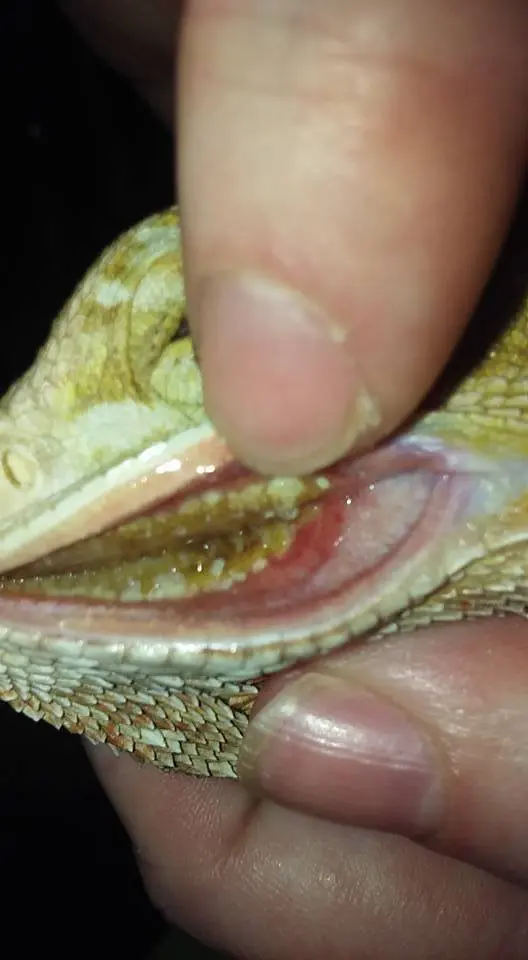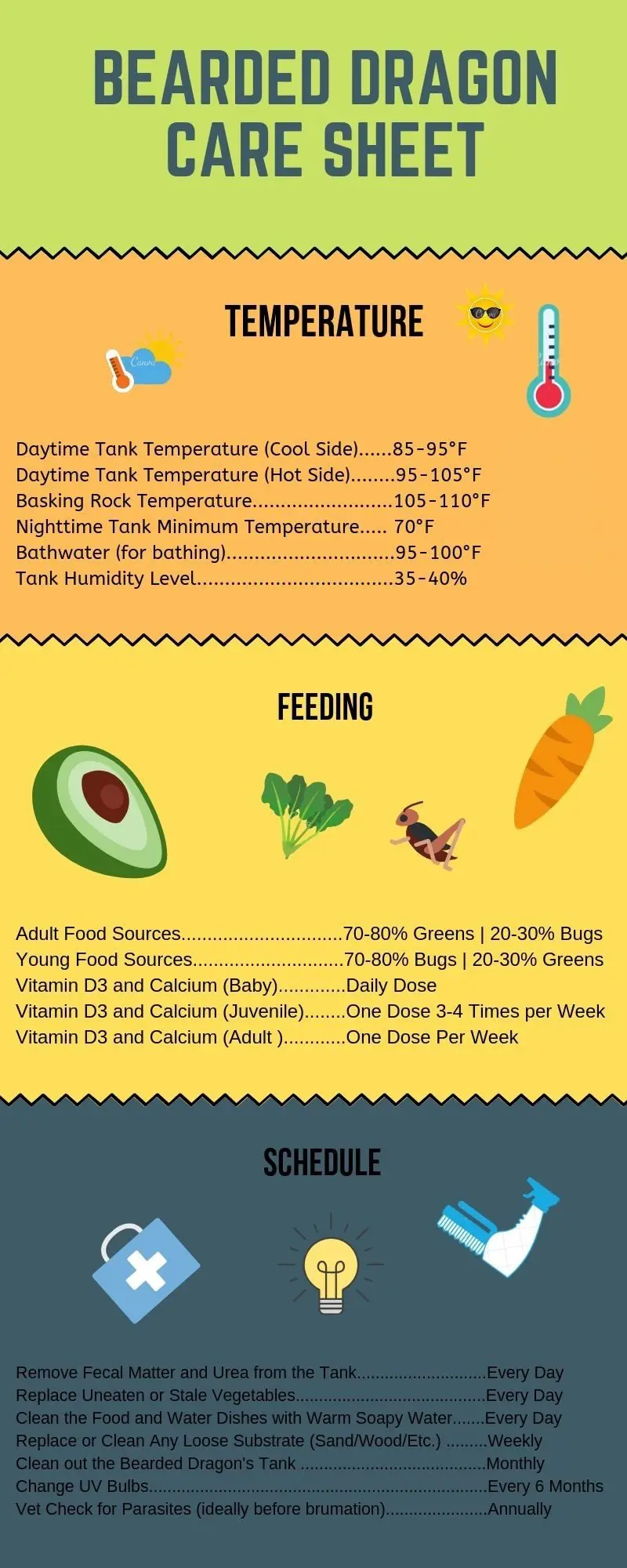Bearded dragons are vulnerable to a range of health problems, many of which start from its mouth. A common dental condition in dragons is mouth rot.
Bearded dragon mouth rot, clinically referred to as Ulcerative Stomatitis, is a gum and mouth infection inside your dragons mouth which is a result of food stuck between its teeth and small cuts.
Untreated mouth rot can be fatal to your beardie, which is why you want to have some knowledge on the symptoms, causes, treatment and prevention.
Signs And Symptoms of Mouth Rot In Bearded Dragons

Mouth rot is diagnosed by noting the symptoms your dragon is experiencing, along with a thorough physical exam and taking note of the bearded dragon’s medical history.
It’s recommended that you check your bearded dragon’s mouth to see if you can find any food stuck between its teeth or in its gums. Look for cuts in the tissue. If you find cuts or food stuck, then ensure you look for developed systems, which include:
- Your bearded dragon isn’t drinking
- Loss of appetite
- Saliva becomes thicker
- Yellowing in areas of the oral tissue
- Yellow pus around and inside the mouth
- The gums and inside of the mouth look swollen
- The face and head appear swollen
Mouth Rot Causes
Bearded dragons can get mouth rot due to a range of issues. This is often caused when the immune system becomes weak, which makes it hard to control the bacteria inside the mouth resulting in oral infection.
There are a number of factors that could negatively impact your dragon’s immune system, but living conditions are usually a large contributing factor.
A stressful environment with improper temperatures, presence of parasites, improper humidity levels, incorrect diet and mouth injuries can all result in mouth rot.
Note that mouth rot can be viral, fungal and bacterial.
If ignored the infection spreads to other organs of your bearded dragon which includes the esophagus and the lungs, it can also result in death if not treated effectively.
How To Treat Mouth Rot In Bearded Dragons
Your veterinarian will carry out a thorough examination to confirm if your bearded dragon has mouth rot. If confirmed, your dragon will be put on a course of antibiotics and you will be shown how to clean its mouth effectively with antiseptic.
Severe cases may require surgery. The surgery is carried out to remove any dead and damaged tissues. After surgery your dragon will be put on a liquid diet during recovery.
Bear in mind that this is a serious health condition and requires professional treatment, you cannot treat mouth rot effectively on your own.
Never give your dragon any human medications, these can be dangerous, if not fatal to your reptile.
How To Prevent Mouth Rot
There are a number of ways you can prevent the risk of mouth rot, these include:
- Annual veterinarian check ups
- Proper temperatures and humidity, both are essential to the overall health of your dragon
- Ample space – ensure you choose the right size enclosure for your dragon to keep it happy and healthy
- Provide a place to hide, so your dragon can rest – this can help to reduce stress
- A healthy and well balanced diet of insects and greens

Conclusion
It’s important to get your dragon comfortable with you handling him so you are able to open his mouth gently with confidence. Carry out regular examinations on your dragon and look for problems inside the mouth.
Know the signs and symptoms and have your dragon checked if you are concerned. The sooner you can start treatment, the sooner your dragon will be happy and healthy again.